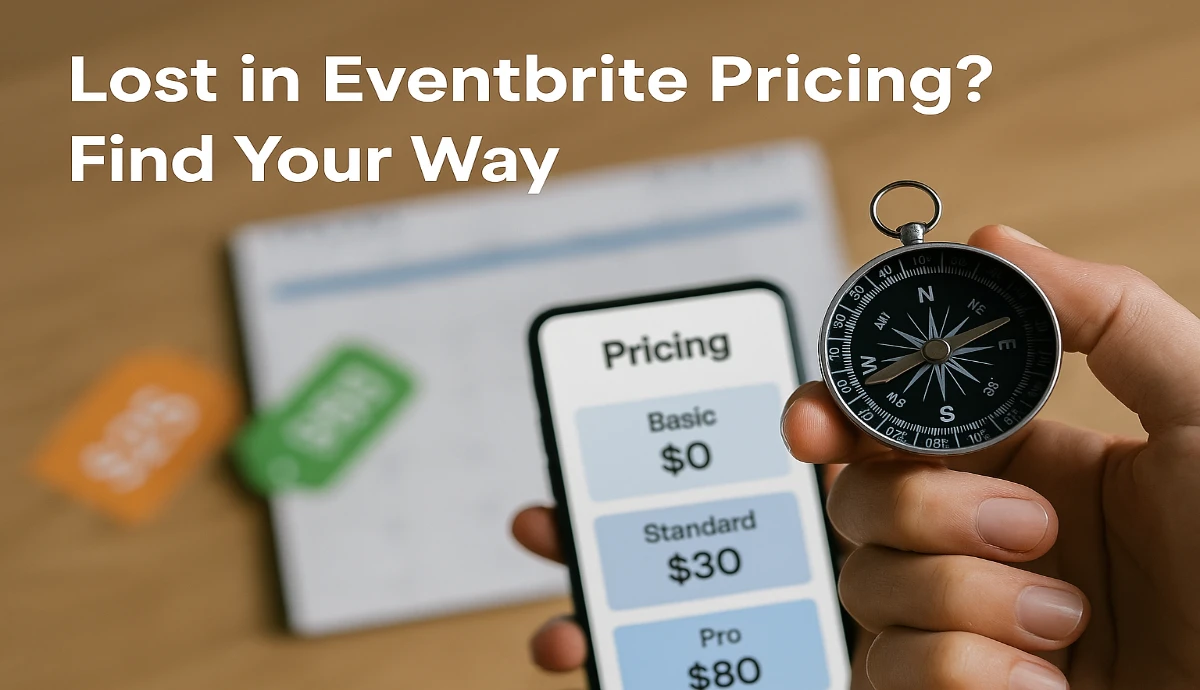Managing events can be exciting for some. But it takes no time to turn that excitement into a nightmare with just a tiny mistake.
What if you printed out the wrong date?
Or messed up the speaker's name on the invite?
Such errors are common but must be avoided at all costs. And if you are looking for ways to tackle these errors head-on, you’ve reached the right place.
Post our research, we’ve come up with super helpful tips to make your job easy, and as error-free as possible.
A. Tips to Manage Multiple Events
Here are some expert tips to help you execute each event with maximum precision-
1. Set practical goals

Alt: Set Realistic Event Goals
The correct way to initiate planning is to make sure you set goals that are realistic and doable. To start with, make sure you take only the projects that you will be capable of handling at once.
Set deadlines that you know you can hit. Sit down with your team and discuss each of their roles and the time that they can use to complete a particular task. This should include attendance goals, marketing deliverables, guest speakers for the event, etc.
Setting achievable goals will keep you from feeling overwhelmed without putting too much pressure on yourself and your team. You can always tweak or adjust if there are additional requests or expectations from clients or customers.
2. Create detailed checklists
Planning an event is stressful enough and having several on your plate can be downright overwhelming. So instead of freaking out, sit down calmly and get a piece of paper looking at each aspect of the event.
The different aspects of your event include logistics, website, promotion, F&B, accommodation, and everything that applies to your specific events. Define time-frames for each of them and break them into actionable steps. This will help you create a detailed checklist.
Simply write it down on a piece of paper or use any online tools available to create or checklist. Google Docs spreadsheet also works just fine.
3. Set deadlines
If you want to finish your things on time, stand firm on deadlines. But make sure to have a plan B assuming all the possible contingencies. Even if it is not you, a team member, partner, or supplier can mess up. So you have to be prepared for the worst.
You can allow time for delays when it comes to setting deadlines. This will mean setting the time a few days before you need to have something done.
Start with a 360-degree view of each aspect of the event such as signage, marketing, or stage design to define the timeframe. Allot deadlines for each of the line items to make sure everything is on track.
4. Prioritize and delegate
Successful event planning requires teamwork and how effectively you distribute tasks to each member. The best way to do this is by prioritizing. You can do this by splitting your tasks into these 4 categories-
- Urgent and important
- Urgent but not important
- Important but important
- Not urgent not important
Aim to complete all the tasks in the first category as soon as you can, delegate or outsource the tasks in the second category, schedule all the tasks in the third category, and try to minimize or eliminate the tasks in the fourth category. Also, identify the right people for each task by communicating your expectations and deadlines clearly.
5. Keep your budget and finances separate

Alt: Keep Your Finances Separate
Event planning requires a comprehensive event budget. No matter how small or big your events are, you need a standalone budget for each of them. This will help you keep organized and keep you from overspending. You can do this by
- Create separate folders for each event to store related documents, spreadsheets, emails, or whatever tools you are using.
- If you are using accounting software, configure it to separate debits and credits for each event.
- Create a unique bank account for each event.
6. Finish all the major tasks early
Big tasks like booking venues, hotels, AV, arranging event tech, and catering should be done early no matter how far away the event is. You might never know when your favorite venue might get booked or your caterer tell you they are unavailable.
Getting these tasks done early makes sure you have enough time to find replacements in case anything goes wrong. Also, get a headstart on drafting marketing emails, social media posts, and all the work that tends to get procrastinated.
One of the effective ways of creating a plan is to start making little notes along the way you think of marketing ideas in your head and pin them all together.
7. Book the same vendors
Working with the same people for each event will make things a lot easier. This will save time on familiarizing and bargaining and can accomplish twice as many tasks on a single call.
You can keep refining your process from event to event while saving money on your event budget with bundling. This will also help you to solidify work relationships as it is easier to work with familiar people
Also, remember that this rule is not set in stone. There may be times when things do not work out the same way or as expected, and if you feel the need to switch vendors, do it right away. Make sure you have a list of all potential alternatives to save time.
8. Start with the registration
Opening your registration early will help you get an idea of the crowd. You will know how many seats are filled, and how many are empty and strategize accordingly to fill them.

Alt: Event Registration
Using an event registration platform like Ticket Generator can help you a great deal in that. You can create and customize your landing page where users can purchase tickets that will land in their inboxes. The registration platform is fully secure for you to handle transactions for multiple events.
9. Use an event planning tool
Using an event planning tool is an essential practice for managing multiple events and projects simultaneously. This will not only help you streamline, but track and collaborate on your work. Tools like Ticket Generator will help you sell, and generate bulk tickets for multiple events at once
Wrapping up
It may sound obvious but the key to managing multiple events is by staying organized. And one of the ways to do this is by streamlining your registration process.
Ticket Generator is an event planning and registration app that can help you organize multiple events smoothly. You can
- Design your own events page to get event registrations
- Configure registration settings to customize your registration process
- Collect ticket payments by fully integrating your payment gateway
- View attendee analytics to plan better for future events
- Generate and send tickets automatically by email, SMS, or WhatsAppApp






.gif)






